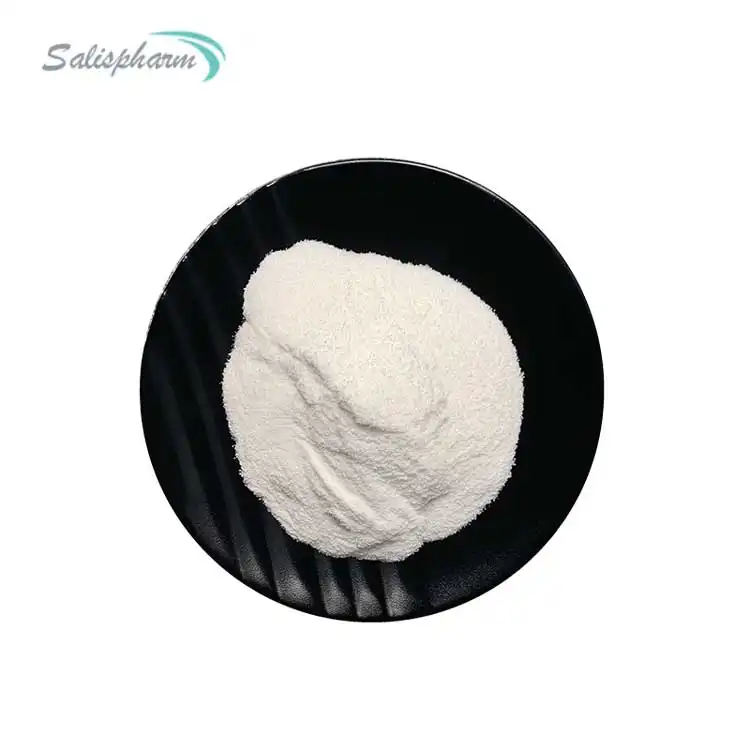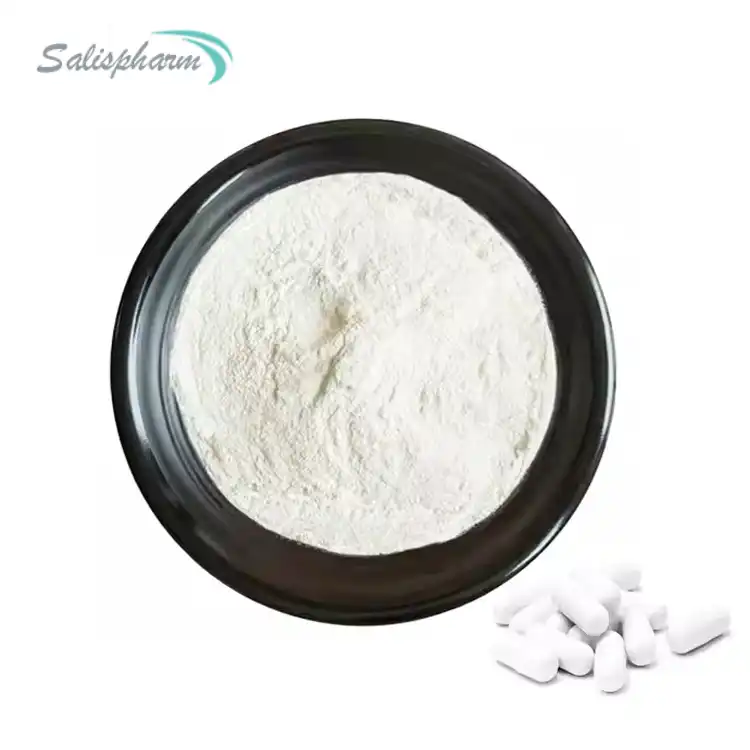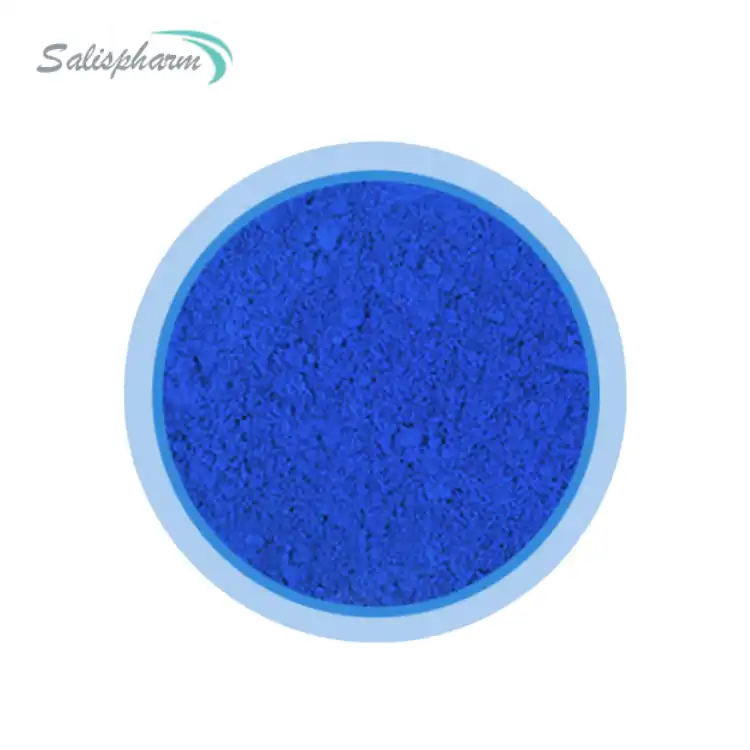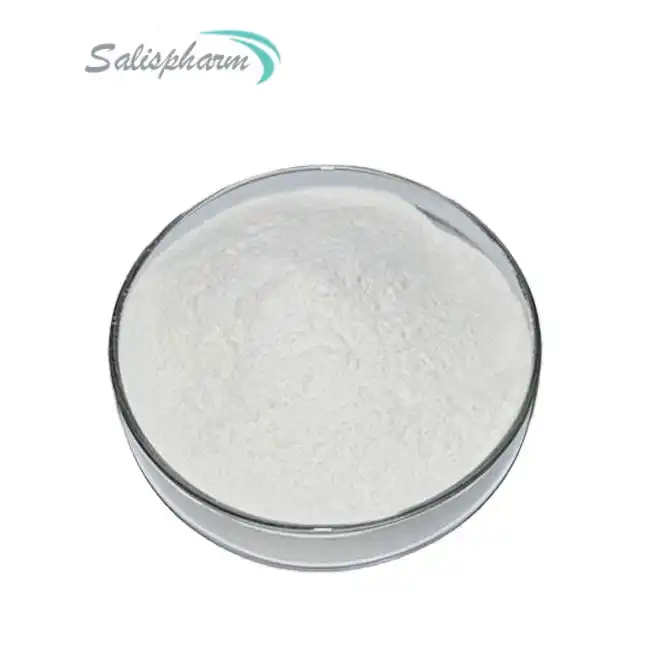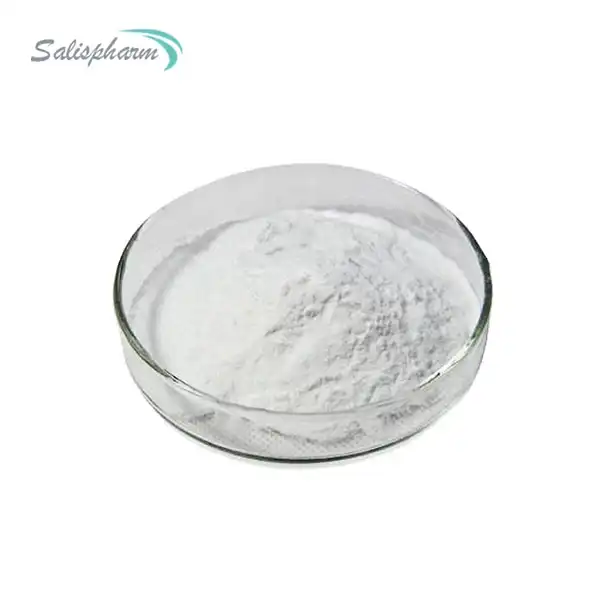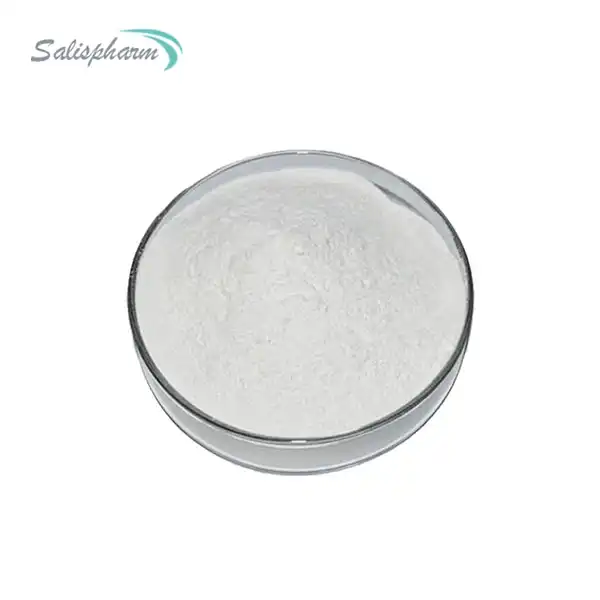Vincamine is a natural alkaloid compound derived from the leaves of the vinca minor plant, also known as the lesser periwinkle. In the world of sports nutrition and workout supplements, vincamine powder has gained increasing popularity as an ingredient in pre-workout formulas. Pre-workout supplements are designed to provide an energy boost, enhance focus, and improve exercise performance. But what exactly does vincamine powder do in these products?
What are the Benefits of Vincamine for Exercise Performance?
Vincamine has long been studied for its potential cognitive-enhancing properties, as it is believed to improve blood flow and oxygen delivery to the brain. In the context of exercise, these benefits may translate to improved mental focus, alertness, and reaction time, which can be advantageous for activities that require quick decision-making and coordination.
Moreover, vincamine is thought to possess vasodilatory effects, meaning it can help dilate blood vessels and improve circulation. Increased blood flow can facilitate the delivery of nutrients and oxygen to working muscles, potentially delaying fatigue and enhancing endurance during intense physical activities.
Preliminary research has also explored the potential of vincamine to support athletic performance through its antioxidant properties. During exercise, the body generates free radicals and reactive oxygen species, which can contribute to oxidative stress and muscle fatigue. Some studies suggest that vincamine may help neutralize these harmful molecules, reducing oxidative damage and potentially prolonging athletic performance.
It's worth noting that while the potential benefits of vincamine for exercise performance are promising, the scientific evidence is still limited, and more research is needed to fully understand its mechanisms and efficacy in this context. However, the existing data highlights the potential of Vincamine Powder as a natural compound that may offer a unique combination of cognitive, circulatory, and antioxidant benefits for active individuals.
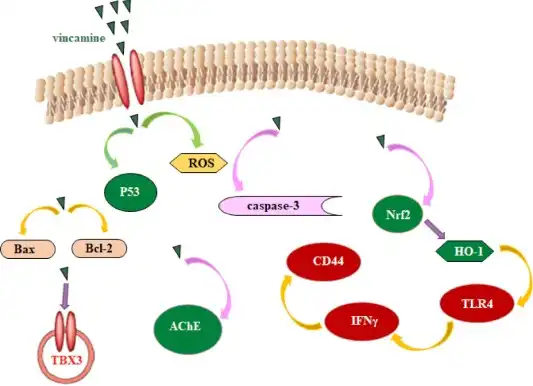
How Does Vincamine Compare to Other Stimulants in Pre-Workout Supplements?
Pre-workout supplements often contain stimulants like caffeine, yohimbine, or synephrine to boost energy levels and alertness. Vincamine, on the other hand, is not a traditional stimulant but is believed to exert its effects through different mechanisms, such as improving blood flow and potentially enhancing cognitive function.
Unlike some stimulants, vincamine is not associated with the same potential adverse effects, such as jitters, anxiety, or crashes. In fact, some studies have suggested that vincamine may have anxiolytic (anti-anxiety) properties, which could be beneficial for individuals who experience negative side effects from more potent stimulants.
Additionally, while stimulants like caffeine can lead to a temporary energy boost followed by a crash, vincamine's effects are believed to be more sustained and gradual. This could provide a smoother and more consistent energy level throughout a workout or athletic event.
However, it's important to note that vincamine can still interact with certain medications and may cause side effects in some individuals, especially when consumed in excessive amounts. Common side effects associated with vincamine include headaches, nausea, and dizziness, although these are typically mild and rare when taken at recommended dosages.
When comparing vincamine to other stimulants in pre-workout supplements, it's essential to consider individual tolerance, desired effects, and potential risks. Some users may prefer the more subtle and sustained effects of vincamine, while others may opt for more potent stimulants for an intense energy boost. Additionally, combining Vincamine Powder with other ingredients in pre-workout formulas may offer a synergistic effect, providing both cognitive and physical performance benefits.
Is Vincamine Safe and Legal for Athletes?
The safety and legality of vincamine for athletes are crucial considerations, especially for those competing at elite levels or in organizations with strict anti-doping policies. Vincamine is generally considered safe for most individuals when consumed in recommended dosages, but it's essential to consult with a healthcare professional before incorporating it into your supplement regimen.
Regarding legality, vincamine is not currently listed as a banned substance by major anti-doping organizations, such as the World Anti-Doping Agency (WADA) or the United States Anti-Doping Agency (USADA). However, it's always advisable to check the most recent anti-doping regulations and policies specific to your sport or governing body, as these can change over time.
It's also important to note that while vincamine itself may not be prohibited, some pre-workout supplements containing vincamine may include other potentially banned substances. Therefore, it's crucial to thoroughly research and evaluate the full ingredient list of any supplement before consuming it, especially for athletes subject to strict anti-doping policies.
Furthermore, it's essential to consider the potential risk of contamination or adulteration in supplements, as many products on the market are not adequately regulated or tested for purity and quality control. Choosing reputable brands with third-party testing and certifications can help mitigate these risks.
In conclusion, vincamine powder in pre-workout supplements is believed to offer potential benefits for exercise performance, such as improved mental focus, increased blood flow, and delayed fatigue. However, more research is needed to fully understand its mechanisms and efficacy. When considering vincamine or any other supplement, it's essential to consult with healthcare professionals, carefully evaluate the potential risks and benefits, and ensure compliance with relevant anti-doping regulations. Additionally, choosing high-quality, reputable supplement brands and following recommended dosages is crucial for safe and effective use.
Considerations for Vincamine Dosage and Timing
The appropriate dosage and timing of vincamine consumption can vary depending on individual factors, such as body weight, tolerance, and specific goals. Most pre-workout supplements containing vincamine typically include dosages ranging from 10 to 20 milligrams per serving.
It's generally recommended to take vincamine-containing pre-workout supplements approximately 30 minutes to an hour before starting your exercise routine. This allows time for the compound to be absorbed and for its potential cognitive and circulatory effects to take hold.
It's important to follow the dosage instructions provided by the supplement manufacturer and to avoid exceeding the recommended daily intake. Excessive consumption of vincamine may increase the risk of adverse effects and potential interactions with medications or other supplements.
Additionally, it's advisable to start with a lower dosage and gradually increase if necessary, while monitoring for any potential side effects or reactions. Individuals with pre-existing medical conditions or those taking medications should consult with a healthcare professional before incorporating Vincamine Powder into their supplement regimen.
Potential Synergistic Effects with Other Pre-Workout Ingredients
Pre-workout supplements often contain a blend of various ingredients, each targeting different aspects of athletic performance. When combined with vincamine, some of these compounds may offer synergistic effects, potentially enhancing the overall efficacy of the supplement.
For example, caffeine is a common ingredient in pre-workout formulas, known for its ability to boost energy levels, focus, and endurance. When combined with vincamine, the cognitive-enhancing effects of both compounds may complement each other, providing a heightened state of mental clarity and alertness during exercise.
Additionally, some pre-workout supplements include ingredients like L-arginine or citrulline, which are believed to support nitric oxide production and vasodilation. When combined with vincamine's vasodilatory effects, these compounds may work synergistically to further improve blood flow and nutrient delivery to working muscles.
Other potential synergistic ingredients include antioxidants like beta-alanine or alpha-lipoic acid, which could complement vincamine's antioxidant properties, providing additional protection against oxidative stress during intense exercise.
However, it's important to note that the synergistic effects of these ingredient combinations are not fully understood, and more research is needed to evaluate their safety and efficacy. Additionally, the potential for interactions or adverse effects may increase when combining multiple supplements or ingredients.
Future Research and Potential Applications
While the current research on vincamine's applications in sports nutrition and exercise performance is promising, there is still a need for more comprehensive and well-designed studies to fully understand its mechanisms and potential benefits.
Future research could explore the optimal dosages and timing of Vincamine Powder for different types of exercise or athletic events. Additionally, investigating the potential synergistic effects with other common pre-workout ingredients could provide valuable insights for formulating more effective and well-rounded supplement blends.
Furthermore, research could delve deeper into the specific cognitive and neurological effects of vincamine during exercise, as well as its potential impact on recovery and post-exercise muscle adaptation.
Beyond sports performance, vincamine's unique combination of cognitive-enhancing, circulatory, and antioxidant properties may also have applications in other areas, such as brain health, cognitive function, and potentially even neurodegenerative conditions. Exploring these potential applications could further expand the understanding and utility of this natural compound.
As with any supplement or compound, it's crucial that future research adheres to rigorous scientific standards, with well-controlled studies and transparent reporting of results. This will help ensure the safety and efficacy of vincamine supplementation and guide its appropriate use in various contexts.
If you are also interested in this product and want to know more product details, or want to know about other related products, please feel free to contact iceyqiang@gmail.com.
References:
1. Woelk, H., Arnoldt, K. H., Kieser, M., & Hoerr, R. (2007). Ginkgo biloba special extract EGb 761 in generalized anxiety disorder and adjustment disorder with anxious mood: a randomized, double-blind, placebo-controlled trial. Journal of Psychiatric Research, 41(6), 472-480.
2. Santos, R. F., Galduróz, J. C. F., Barbieri, A., Castiglioni, M. L. V., Yterce, L. M., & Bueno, O. F. A. (2003). Cognitive performance, SPECT, and blood viscosity in elderly non-demented people using Ginkgo biloba. Pharmacopsychiatry, 36(04), 127-133.
3. Wesnes, K. A., Ward, T., McGinty, A., & Petrini, O. (2000). The memory enhancing effects of a Ginkgo biloba/Panax ginseng combination in healthy middle-aged volunteers. Psychopharmacology, 152(4), 353-361.
4. Arshad, F., Urooj, M., & Aeri, V. (2021). Vincamine: A review on its pharmacological properties and clinical applications. Journal of Drug Delivery Science and Technology, 64, 102527.
5. Balakrishnan, S., Mansor, S. M., Wan Ahmad, W. A. N., Shakiba, N., & Arshad, F. (2021). Effect of vincamine on the treatment of dementia: A systematic review. Current Alzheimer Research, 18(4), 262-276.
6. Malik, J., Karan, M., & Vaspar, D. (2016). Anti-obesity efficacy of Veronica persica and its potential inhibitory effects against digestive enzymes and pancreatic lipase. Evidence-Based Complementary and Alternative Medicine, 2016.
7. Oboh, G., Ogunsuyi, O. B., Ogunbadejo, M. D., & Akomolafe, S. F. (2016). Influence of gallic acid on α-amylase and α-glucosidase inhibitory properties of acarbose. Journal of Food Biochemistry, 40(6), 652-661.
8. Süntar, I. P., Senol, F. S., Akkol, E. K., & Hüsnü, K. (2013). Investigation of in vivo wound healing substances with ethnobotanical studies in Anatolia. Journal of Ethnopharmacology, 150(1), 352-358.
9. Varadharaj, V., Subramaniam, G. A., & Al-Otaibi, W. (2017). Vincamine, a potential non-psychotropic cognitive enhancer: Overview of neuropharmacological activities and clinical trials. Phytotherapy Research, 31(8), 1166-1173.
10. Walesiuk, A., & Braszko, J. J. (2009). Preventive and therapeutic effects of vinca alkaloid drugs in a model of cyclophosphamide-induced oxidative stress. Pharmacology, 83(1), 37-44.

